What are hives?
The main symptom of hives is an itchy rash.
The rash can:
be raised bumps or patches in many shapes and sizes
appear anywhere on the body
be on 1 area or spread across the body
feel itchy, sting or burn
look pink or red when affecting someone with white skin; the colour of the rash can be harder to see on brown and black skin
Hives rashes usually get better within a few minutes to a few days. You can often treat hives yourself.
Pictures
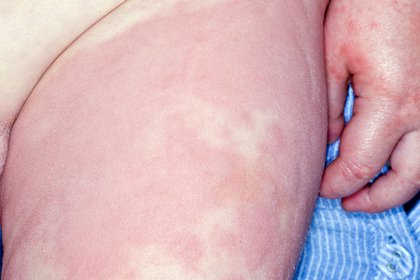
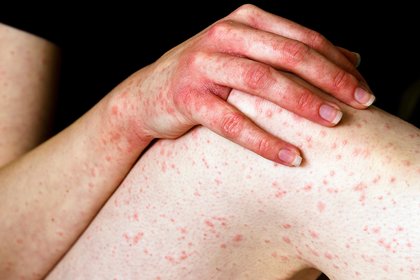
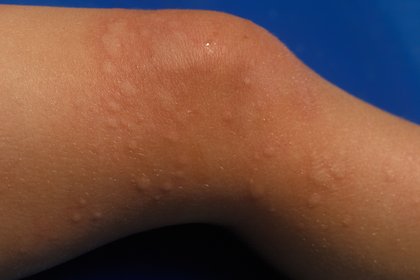
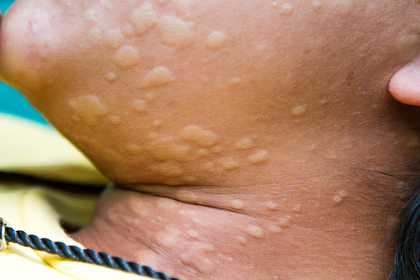
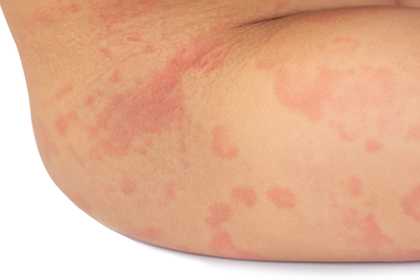
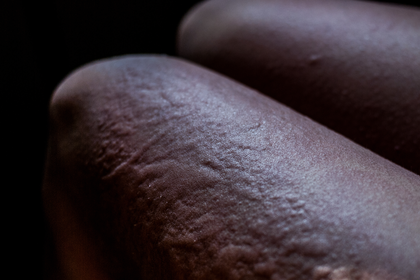
Treatment
A community pharmacist can give you advice about antihistamine treatment to help a hives rash.
Tell the pharmacist if you have a long-term condition, because you might not be able to take antihistamines.
This treatment might not be suitable for young children.
When to contact the surgery
- the symptoms do not improve after 2 days
- you’re worried about your child’s hives
- the rash is spreading
- hives keeps coming back (you may be allergic to something)
- you also have a high temperature and feel unwell
- you also have swelling under your skin (this might be angioedema)
Call 999 if:
- your lips, mouth, throat or tongue suddenly become swollen
- you’re breathing very fast or struggling to breathe (you may become very wheezy or feel like you’re choking or gasping for air)
- your throat feels tight or you’re struggling to swallow
- your skin, tongue or lips turn blue, grey or pale (if you have black or brown skin, this may be easier to see on the palms of your hands or soles of your feet)
- you suddenly become very confused, drowsy or dizzy
- someone faints and cannot be woken up
- a child is limp, floppy or not responding like they normally do (their head may fall to the side, backwards or forwards, or they may find it difficult to lift their head or focus on your face)
-
